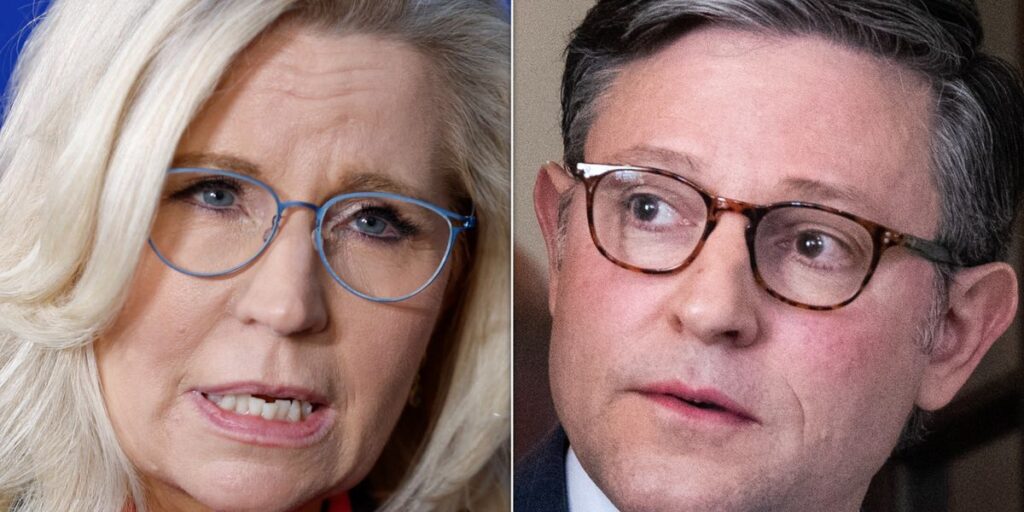Former Republican congresswoman Liz Cheney recently expressed concerns regarding House Speaker Mike Johnson’s commitment to uphold the constitutional transfer of power, particularly in the context of the upcoming presidential election involving Vice President Kamala Harris. In a candid conversation with NBC News’ Kristen Welker on “Meet the Press,” Cheney articulated her skepticism about Johnson’s willingness to certify a Democratic victory should it occur in January 2025. She underlined that her lack of faith stems from Johnson’s previous alignment with Donald Trump’s efforts to undermine the 2020 election results, pointing out that many of the claims made by Trump regarding election interference have been extensively discredited.
Cheney’s criticism of Johnson was sharp and focused, highlighting what she perceives as a troubling pattern of behavior. She accused him of engaging in actions that are both incorrect and unconstitutional to appease Trump. This viewpoint reflects a broader concern among some political observers that the integrity of democratic processes could be compromised by partisan loyalties over constitutional obligations, particularly within a party that has seen increasing influence from Trump and his supporters. In her commentary, Cheney urged recognition of the gravity of the situation, warning that the principles of democracy may be at risk if individuals like Johnson prioritize allegiance to Trump over fidelity to the Constitution.
During the same episode of “Meet the Press,” Cheney pointedly remarked on Johnson’s interview just preceding hers, suggesting that Johnson displayed an unsettling level of deference to the former president. This observation indicates the broader theme of political loyalty overshadowing foundational democratic norms. Furthermore, Cheney articulated a critical view of the current Republican leadership, implying that their track record may hinder fair electoral outcomes. She asserted the importance of Democrats securing a majority in Congress as a safeguard against potential electoral misconduct or manipulation by Republican lawmakers.
Johnson, in his own interview on “Meet the Press,” made a statement that he would certify a “free and fair and legal election,” although this declaration appeared to leave open the possibility of rejecting the election results under the pretense of alleged voter fraud. This statement raises alarm bells for many observers, including Cheney, who fear that such rhetoric could serve as a precursor to the invalidation of legitimate electoral outcomes, mirroring the turmoil seen during the aftermath of the 2020 presidential elections. The underlying concerns revolve around the potential for partisan accusations of fraud to undermine public trust and the acceptance of electoral results.
In a separate interview on “Face the Nation,” Johnson further complicated his stance by suggesting that he anticipates instances of “cheating” in the upcoming election. Such assertions contribute to a narrative that casts doubt on the electoral process, fostering an environment of suspicion that could lead to further polarization and discord among voters. This sentiment is notably echoed by Trump, who has consistently prepared his supporters for potential accusations of election tampering in the event of his defeat. At various public events, Trump has alluded to the notion that external interference, rather than a legitimate electoral setback, could thwart his chances of winning.
In summation, Cheney’s comments underscore a deepening divide regarding the integrity of democratic processes in the U.S., particularly as the nation approaches another critical election cycle. Her doubts about Johnson’s allegiance to constitutional principles embody a broader anxiety over the Republican Party’s commitment to democracy. This situation is further aggravated by Trump’s rhetoric, which has consistently framed potential electoral loss in a context of alleged fraud, reinforcing a narrative that diminishes trust in electoral institutions. As the political landscape evolves, the concerns raised by Cheney and echoed by others signal a need for vigilance in defending democratic norms and ensuring fair electoral practices.

